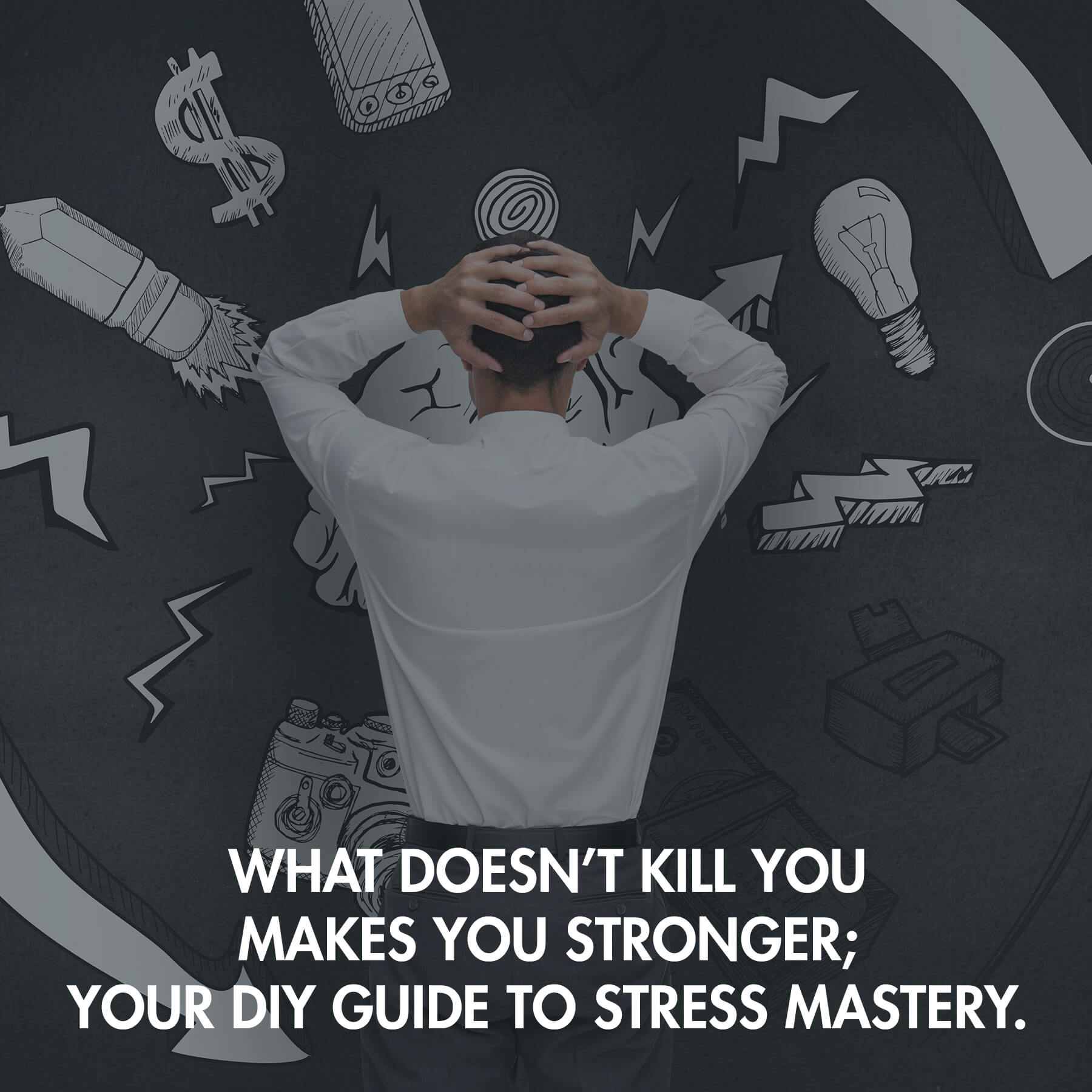In the modern world where you feel like simply another element of the ongoing rat race, stress is a topic that seems to keep resurfacing. As unavoidable as work, life, and family stress seems to be, throw in a global pandemic, political disturbances, and an economic crisis to feel like your coping skills are stretched to the point of snapping.
With stress being a common factor influencing a vast majority of non-communicable diseases in society including cancers, high blood pressure, diabetes, and strokes, do you wonder how to avoid the unavoidable?
What actually happens in the body when stressed?
Physiologically in the face of a stressor, the body develops a stress response as an adaptive process. This is an integrated process of events to make fight-or-flight feasible.
This stress response could be acute or chronic depending on the stressor. Acute stress triggers the “battle stations” in your body where heart rate rises, skeletal muscles are activated and the body’s energy stores are made more available, with the effect of the hormone adrenaline. The immune system also goes on overdrive directing immune cells to the “battlefield” to tend to damaged cells in the process.
Simultaneously, saving precious energy by inhibiting “less” important activities like digestion, sexual drive, and growth. But if this acute stressor is repetitive and exceeds the threshold of the body’s coping mechanisms, the maladaptation converts to a chronic stress response. This can be detrimental to the body as the chemical substances that are released during this phase, suppress immunity and take a toll on mental health causing anxiety and depression.
Is there a way to manipulate acute stress to avoid breaking you, and strengthen you instead?
Here are a few steps to be better at stress for a better-quality life.
1. Be wiser than your opponent.
- The science behind this is similar to developing immunity to a virus your body has been exposed to once or rehearsing for a triathlon.
- When you have visualized, educated on possible outcomes, and learned what to expect, when a stressful event hit you, it is simply about improvising a plan rather than being blindsided.
2. Step out of your comfort zone
- When you have pushed your boundaries to challenge your emotional endurance and physical integrity, where you are stressed but having fun like in a thrilling adventure, over time your body’s biological response to stress reconditions.
- Go on a hike, camp outdoors, take a long drive or simply finish that book over in 3 days instead of a week!
3. Change your perception
- Stress is not all hell breaking loose in your body, In fact, your body is prepping for you to face your adversary.
- Your heart rate isn’t rising because you are having a panic attack, it is because it is working harder to help you face your challenge.
- A simple shift of mindset can avoid a lot of confusion you face internally when faced with a tough situation.
4. Exercise and eat healthy
- Exercising releases endorphins which are a natural pain killer and also improve the quality of sleep. Eating healthy replenishes energy stores, and gives an adequate supply of vitamins and minerals, boosting immunity.
5. Feed your mind positivity
- Your mind and body are intrinsically linked. When your mind feels resilient and stronger, so does your mind.
- Meditation, falling back on religion and spirituality, and also giving yourself a physical and mental breather from a stressful environment to relax and come back rejuvenated, heal your mind.
6. Ask for help.
- When going gets tough, yes, get tough, but it is not a weakness to seek assistance.Have a support system, reach out to friends and family, talk to a therapist or simply seek help from a co-worker. You are only human after all!
As difficult as facing it is, stress doesn’t have to necessarily break. you can wisely adapt to mechanisms which instead help you use that energy to motivate you to do better.







